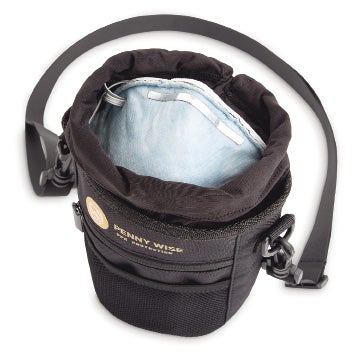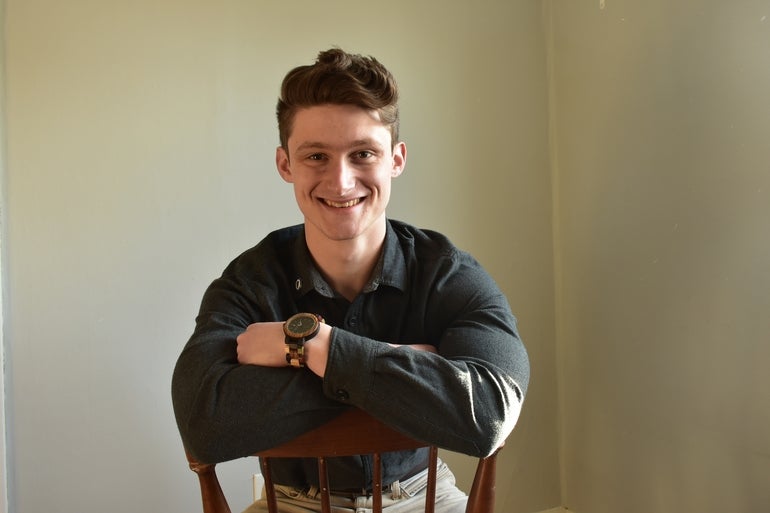Ethan Lutz has been serving as an emergency medical technician in Worcester for the last four years. When the coronavirus pandemic was ravaging New York City last spring, the Federal Emergency Management Agency sent him to Queens, N.Y., to help.
Get Instant Access to This Article
Subscribe to Worcester Business Journal and get immediate access to all of our subscriber-only content and much more.
- Critical Central Massachusetts business news updated daily.
- Immediate access to all subscriber-only content on our website.
- Bi-weekly print or digital editions of our award-winning publication.
- Special bonus issues like the WBJ Book of Lists.
- Exclusive ticket prize draws for our in-person events.
Click here to purchase a paywall bypass link for this article.
Ethan Lutz has been serving as an emergency medical technician in Worcester for the last four years. When the coronavirus pandemic was ravaging New York City last spring, the Federal Emergency Management Agency sent him to Queens, N.Y., to help. While there, he started a new business.

Why did you found Penny Wise PPE?
When I was in New York, I saw doctors and nurses and everyone on the frontline were reusing their N95 masks, because there was a shortage. At the time, the recommended route of storing your mask between uses was to throw it in a paper bag.
I was concerned because I thought contamination from the outside of the masks could get on the inside of the bag, and then get the contamination inside the mask.
I came up with the CopperClean bag as a solution. It is not designed to sterilize your mask, but to give you a clean place to store it between uses.
I designed them while in the back of an ambulance in Queens. While I was deployed in New York was when I laid the foundation for the company. When I came back, I had about $7,000 from my FEMA deployment, which is used to make the initial bags and set up the website. I have a patent pending.
How have sales been?
It has been going really well. We have sold a significant number of bags to individuals. We are working now to possibly expand to UMass Memorial Health Care to provide the bags in the emergency department, as well as to skilled nursing facilities in Worcester and private EMS companies.
The bag costs $25 retail, with discounts for large orders.
We have been doing some marketing online, but in February, we started working with Emerson College in Boston with their guerilla marketing class, focusing on Boston healthcare providers.
What comes next?
A big part of what our company is doing looking beyond just selling to individual people, but to sell to federal, state and local governments. We have applied for a U.S. Department of Defense contract for innovative COVID products.
Next we are targeting the strategic national stockpile. My CopperClean bag would be a good addition. The problem with the N95 masks is they can only be stored for so long, because the elastic wears out over time. My CopperClean can be stored for 100 years or more, because copper doesn’t break down.
Why copper?
Copper is a fantastic germicidal substance and has been used for centuries. The ancient Phoenicians used copper to clean their battle wounds. Copper storage containers have been used in Indian to store water. Even today, copper is used in modern water pipes.
Copper has been really effective at keeping things clean.
You graduate in the spring. What are your plans after graduation?
For me, this business is a wake-up call. I have been serving as an EMT for four years, and I’ve been political my whole life; and this business has been transformational in what I decided I want to do with the rest of my life. I want to be entrepreneurial and then eventually enter into public service.
How will the company be political?
I am working to set up a nonprofit called Citizens for Responsible Automation, to specifically address the problem of job losses in grocery stores, due to front-end automation.
Grocery stores are a good source of employment for senior citizens looking for supplemental income, as well as for people with disabilities, in addition to high schoolers and the children of the community. The grocery store really does provide a public good in a way a lot of other institutions don’t, yet many of the front-end jobs are being lost to self checkouts and other technology.
I want to have a state law requiring grocery stores with more than $1 million in annual revenue to maintain at least two active front-end employees at all times. We plan on having the nonprofit website up in a month, and then we will start lobbying the Massachusetts legislature. If that doesn’t work, we will begin collecting signatures to create a ballot initiative for 2022.
Penny Wise, which is an S corporation, will serve as the primary funding mechanism for the nonprofit.
This interview was conducted and edited for length and clarity by WBJ editor Brad Kane.

